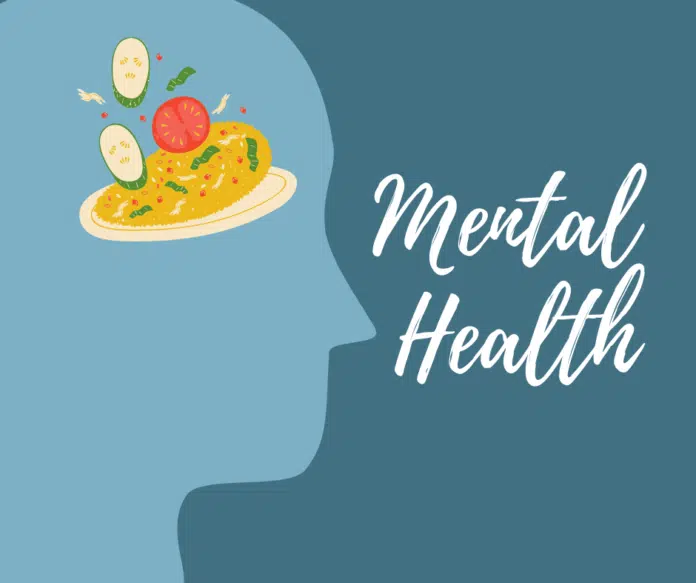
Geva Salerno, BS, MA IPS
Nutrition and our food choices can actually affect our mood and functioning.
Mental wellness, a relatively new concept, has become increasingly challenging for many Americans. It is a state of being that indicates a healthy and resilient functioning of the mind and emotions. Just as wellness is a state of being which reflects a healthy lifestyle, mental wellness is also highly affected by our lifestyle and life choices.
Here are several ways that the food you eat affects your mental state:
Blood Sugar Level
Do you ever feel suddenly angry for no reason, or say something you regret only to realize later that you had missed a meal?
The brain’s main fuel source is glucose and keeping one’s blood sugar level constant helps keep the brain functioning consistently. When the blood sugar level suddenly drops without warning, it is known as hypoglycemia.
Immediate symptoms of hypoglycemia are:
· An irregular or fast heartbeat
· Fatigue
· Shakiness
· Anxiety
· Irritability
· Confusion
· Abnormal behavior
· Visual disturbances
· Seizures
· Loss of consciousness.
Hypoglycemia is an underlying cause of several mental health issues, including anxiety, depression, and even psychosis. Many people experience hypoglycemia just prior to extreme changes in behavior, including arguing, irrational anger, impulsivity, or even car accidents. They may have experienced sudden mood changes and erratic behavior for so long that it actually feels normal, and they don’t connect their blood sugar level changes with their changes in mood or behavior.
Hypoglycemia has several causes, including fasting, medications, and stress. It can also be caused by tumors of the pancreas or a diet high in refined carbohydrates (sugar). The refined carbohydrates cause a rapid rise in blood sugar, triggering an excess of insulin secretion from the pancreas, and dropping the blood sugar quickly to an abnormally low level.
Hypoglycemia can be prevented by eating a diet balanced with complex carbohydrates, protein, and healthy fats.
Inflammation of the Brain and Body
Ever get “brain fog” after eating certain foods?
Recently, researchers have found a connection between inflammation and mental illness. In the past, it was thought that inflammation only came from infection. However, non-localized, long-term inflammation is now recognized as an underlying cause of many chronic conditions, including:
· Diabetes
· Cardiovascular disease
· Arthritis
· Allergies
· Mental health issues.
In order to calm the immune system and restore balance, it is possible to reduce inflammation. Many psychiatric interventions actually have anti-inflammatory effects, even though they weren’t designed that way. And there are both nutritional and lifestyle modifications, which can reduce inflammation. Some foods promote inflammation, others reduce it. Some nutritional changes might include increasing the “good fats” in the diet, reducing the “bad fats,” and increasing the amount and types of fiber in the diet, both of which reduce inflammation.
Don’t Starve Your Microbiome
The importance of fiber in the diet cannot be overstated. As you will see, fiber supports all of the lessons above. This could be the one major change that impacts mental wellness the most.
Fiber used to be a big part of the human diet. However, because of massive changes in food preferences and the way food is manufactured, certain kinds of fiber have almost disappeared from the American diet. Food processing involves the removal or destruction of fiber and as food has become increasingly more processed in the US, (think junk food and products made with a lot of white flour), the amount of fiber in the American diet has been dramatically reduced.
Currently, the recommended daily amount of fiber in the United States is 28 to 35 grams per day. However, the average intake is closer to 16. Increasing the amount of fiber in the diet of most Americans could promote mental wellness.
Fiber impacts mental health in three main ways.
Insoluble fiber is important because it helps bulk up the feces, and the intestines can more easily then push waste through the alimentary canal. This helps reduce the transit time (the time it takes to move food through the intestines) and supports the overall cleaning of the body and the elimination of toxins.
Second, soluble fiber is important because it forms a gel that lines the small intestines and slows down the absorption of nutrients like sugar and starch. This helps prevent the rapid absorption of the sugars which cause hypoglycemia.
Finally, the primary food source of the bacteria in the gut, “the microbiota,” is fiber. Since the microbiota is responsible for creating 95% of the serotonin used by the brain, in order to feel our best, we need to feed the microbiota well. Additionally, sometimes one food source will contain several types of fiber, each of which directly affects mental functioning differently.
Choosing the right foods for peak mental wellness is not as hard as you’d think. Some changes will be necessary, but the end result – feeling clear, calm, and confident, is well worth the effort.
Geva L. Salerno is a writer with a BS degree in biochemistry and an MA in International policy, who works part-time in a psychiatric hospital and leads an international network of women. She is the author of the online course, “Nutrition for Mental Wellness.”






















